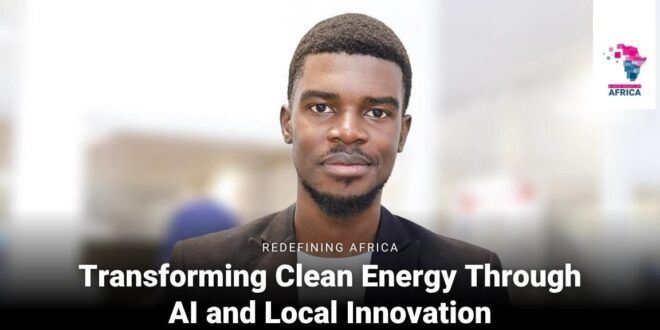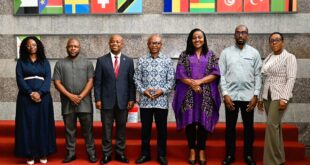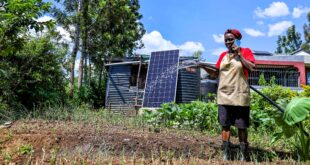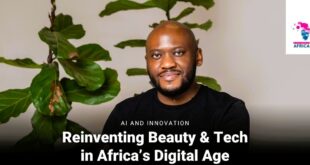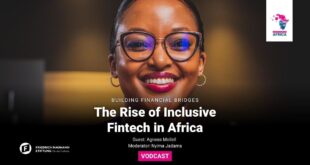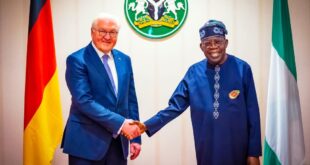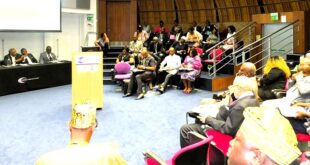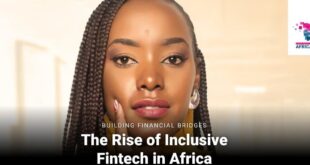The Friedrich Naumann Foundation for Freedom (FNF), in partnership with Nyima’s Bantaba Media Platform, is spotlighting changemakers who are transforming narratives and reshaping Africa’s future. As part of a series of interview publications (VOD & Podcast), Nyima’s Bantaba Media Platform profiles four innovators across East and Southern Africa who are not only talking about change but building it from the ground up.
![]()
In this edition, Nyima Jadama spotlights Tinaye Makoni, CEO and Co-founder of Skicc Tech.
The Zimbabwean tech entrepreneur is tackling two of Africa’s most pressing challenges — energy poverty and unsustainable agriculture — with one powerful solution: an AI-powered solar mini-grid system bringing affordable, decentralised clean energy to rural dwellers.
“Africa’s potential is massive. We wake up with the sun every day — yet millions still live without electricity.” — Tinaye Makoni
Makoni’s journey into entrepreneurship began during his university years. Confronted with the prospect of unemployment after graduation, he recognised that one of Africa’s biggest barriers to industrialisation — and job creation — was unreliable energy access.
“In Zimbabwe, opportunities for growth are limited by access to energy,” he says. “Energy poverty is not just about electricity; it’s about dignity, opportunity and survival.”
This realisation led to the birth of Skicc Tech, a company focused on building solar-powered, AI-driven micro-grids that make clean energy accessible and affordable for rural households, farms and small industries.
Bridging Energy and Agriculture with AI
Skicc Tech’s innovation — known as the Grid Box — is a decentralised solar power station designed for communities far from the national grid.
“Africa holds 60% of the world’s solar potential but uses only a fraction of it,” Makoni explains. “The cost of large-scale power infrastructure makes it impossible for many to access reliable electricity. So we decided to bring the grid to the people.”
Each Grid Box integrates edge AI and real-time sensors to monitor moisture levels, temperature and irrigation cycles. The system automatically controls water pumps, reducing energy use and water waste while improving agricultural productivity.
“Instead of using 20,000 litres to irrigate a field, our clients can achieve the same results using less water and energy,” he notes. “That’s how AI becomes practical — not abstract — in rural Africa.”
Powering Communities, One Box at a Time
In Zimbabwe’s Manicaland province, a region devastated by drought during the 2023 El Niño season, Skicc Tech deployed one of its first Grid Boxes. The system powered water pumps that supplied drinking water and irrigation to the community — transforming both livelihoods and food security.
The company has since expanded into the mining sector, helping reduce carbon emissions through renewable energy integration.
“Our next goal is to pioneer what we call Green Gold — minerals produced from green energy,” Makoni says. “We want to decarbonise mining, one station at a time.”
Decentralization: Africa’s Energy Game-Changer
For Makoni, decentralisation is Africa’s best path forward.
“Africa has more sunlight than most of Europe, yet countries like Germany — which are often cold and cloudy — have more solar panels,” he reflects. “The irony is that we have the resources, the minerals like lithium and the sunlight. When you combine those, you get a robust, self-sustaining energy system.”
His vision extends beyond Zimbabwe. With over 600 million Africans still living without electricity, Makoni believes the continent’s future lies in locally owned, scalable solutions that deliver power where it’s needed most.
From Idea to Impact
The path hasn’t been easy. Access to finance remains one of the toughest hurdles.
“We have the technology and talent, but large-scale energy projects require capital,” Makoni admits. “We’re always looking for partners who believe that energy access is an urgent human right, not a luxury.”
Despite financial barriers, Skicc Tech continues to expand, with plans to reach Zambia and other Southern African countries in the near future.
Empowering the Next Generation
Makoni is as passionate about mentorship as he is about technology. In 2023, after completing Stanford University’s Idea to Market course, he began mentoring over 200 young entrepreneurs, teaching them how to transform ideas into viable ventures.
“Knowledge is the most powerful tool we can give. If I succeed, others should be able to follow — or go even further,” he says.
Redefining Global Perceptions of African Innovation
Skicc Tech’s work is not just about electricity — it’s about reframing Africa’s narrative from one of dependency to one of ingenuity.
“AI shouldn’t just generate images or text; it should feed people, power communities and build industries,” Makoni argues. “We’re showing the world that Africa’s innovation is tangible — it’s changing lives.”
He calls on global partners to collaborate, not as donors, but as equals in a shared mission for sustainable progress. “Africa doesn’t need saving — it needs enabling. When Africa rises, the world stands to gain.”
Giving Africa a New Image
When asked what “giving Africa a new image” means to him, Makoni’s answer is simple yet profound:
“We cannot change the past, but we can shape the present and build the future. The new image of Africa is about execution — less talk, more action.”
He believes the continent’s next chapter will be written by doers — innovators who turn bold ideas into measurable change.
Words of Advice for Young Entrepreneurs
“Stop aspiring — start doing,” Makoni says firmly. “Don’t wait for the perfect time or more resources. Action creates results. Every small step you take today shapes generations to come.”
![]()
Watch the interview on Youtube HERE
For more information about the project and the broadcast publication, visit: https://www.freiheit.org/de/subsahara-afrika/focus/ein-neues-bild-von-afrika
 THE AFRICAN COURIER. Reporting Africa and its Diaspora! The African Courier is an international magazine published in Germany to report on Africa and the Diaspora African experience. The first issue of the bimonthly magazine appeared on the newsstands on 15 February 1998. The African Courier is a communication forum for European-African political, economic and cultural exchanges, and a voice for Africa in Europe.
THE AFRICAN COURIER. Reporting Africa and its Diaspora! The African Courier is an international magazine published in Germany to report on Africa and the Diaspora African experience. The first issue of the bimonthly magazine appeared on the newsstands on 15 February 1998. The African Courier is a communication forum for European-African political, economic and cultural exchanges, and a voice for Africa in Europe.

